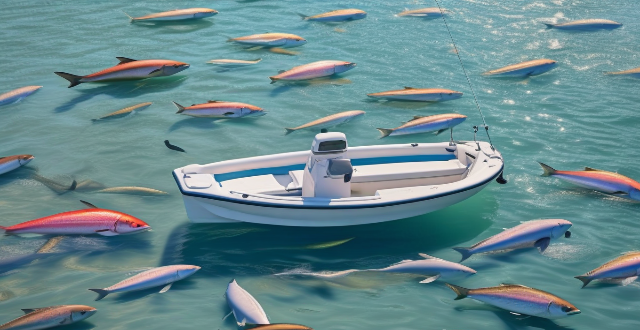Sustainable fishing practices are crucial for mitigating the effects of climate change on the environment. These practices aim to conserve marine ecosystems, reduce carbon emissions from fisheries, promote responsible consumption, maintain biodiversity, enhance carbon sequestration, and promote ecosystem-based management. By adopting sustainable fishing practices, we can help maintain the health and balance of our oceans in the face of climate change. As individuals and communities, we must support these practices and make responsible choices when consuming seafood products to protect our planet's delicate ecosystems and ensure a sustainable future for all.

Can Sustainable Fishing Practices Help Mitigate the Effects of Climate Change on the Environment?
Sustainable fishing practices are essential for maintaining the health and balance of our oceans, which play a crucial role in regulating the Earth's climate. By implementing sustainable fishing methods, we can help mitigate the effects of climate change on the environment. In this article, we will discuss how sustainable fishing practices can contribute to reducing the impacts of climate change.
The Importance of Sustainable Fishing Practices
Conservation of Marine Ecosystems
Sustainable fishing practices aim to conserve marine ecosystems by minimizing the impact of fishing activities on the environment. This includes reducing overfishing, avoiding destructive fishing techniques, and protecting vulnerable species and habitats. By preserving these ecosystems, we can maintain the biodiversity and resilience of our oceans, which are vital for mitigating the effects of climate change.
Reduction of Carbon Emissions
Fisheries contribute significantly to greenhouse gas emissions through fuel consumption and other activities related to fishing operations. Sustainable fishing practices can help reduce these emissions by promoting energy efficiency, using alternative energy sources, and implementing waste reduction strategies. By lowering carbon emissions from fisheries, we can help slow down the pace of climate change and its impacts on the environment.
Promotion of Responsible Consumption
Sustainable fishing practices also encourage responsible consumption of seafood products. By choosing sustainably caught or farmed seafood, consumers can support environmentally friendly fishing methods and reduce the demand for unsustainable practices. This, in turn, helps to preserve marine ecosystems and mitigate the effects of climate change on the environment.
How Sustainable Fishing Practices Can Mitigate the Effects of Climate Change
Maintaining Biodiversity
Sustainable fishing practices play a crucial role in maintaining the biodiversity of marine ecosystems. By conserving vulnerable species and habitats, we can ensure that these ecosystems remain resilient in the face of climate change. This resilience is essential for mitigating the effects of climate change on the environment, as healthy ecosystems can absorb more carbon dioxide and provide other ecological services that help regulate the Earth's climate.
Reducing Carbon Emissions
As mentioned earlier, sustainable fishing practices can help reduce carbon emissions from fisheries. This is particularly important given that the transportation sector, including fishing vessels, is a significant source of greenhouse gas emissions. By implementing energy-efficient technologies and alternative energy sources in fishing operations, we can lower carbon emissions and slow down the pace of climate change.
Enhancing Carbon Sequestration
Sustainable fishing practices can also enhance carbon sequestration in marine ecosystems. Healthy coral reefs, seagrass beds, and mangrove forests act as natural carbon sinks, absorbing large amounts of carbon dioxide from the atmosphere. By protecting these ecosystems through sustainable fishing practices, we can increase their capacity to store carbon and help mitigate the effects of climate change on the environment.
Promoting Ecosystem-Based Management
Ecosystem-based management (EBM) is an approach to fisheries management that considers the entire ecosystem, rather than focusing solely on individual species or fish stocks. Sustainable fishing practices are integral to EBM, as they take into account the interactions between different species and their environment. By adopting EBM principles, we can ensure that fishing activities do not harm the overall health and resilience of marine ecosystems, which are essential for mitigating the effects of climate change on the environment.
In conclusion, sustainable fishing practices are crucial for mitigating the effects of climate change on the environment. By conserving marine ecosystems, reducing carbon emissions, enhancing carbon sequestration, and promoting ecosystem-based management, we can help maintain the health and balance of our oceans in the face of climate change. As individuals and communities, we must support sustainable fishing practices and make responsible choices when consuming seafood products to protect our planet's delicate ecosystems and ensure a sustainable future for all.